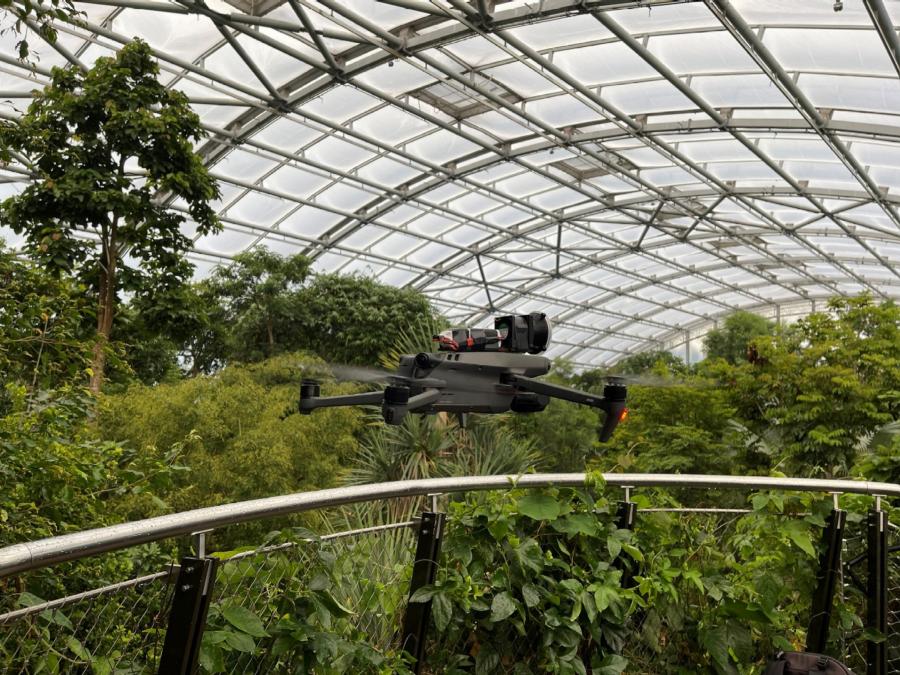Earlier this year, Zoo Zurich in Switzerland partnered with ETH Zurich’s technology institute to allow university researchers to collect environmental DNA (eDNA) with drones to further the understanding of our planet’s biodiversity.
The team from ETH Zurich is participating in the five-yearlong XPrize Rainforest Competition, organized by the U.S. nonprofit XPrize. There is $10 million in prize money at stake, with a $5 million grand prize awarded to the winning team.
The ETH Zurich research team’s goal is to detect and identify as many species as they can in the shortest time possible. However, team members needed to test their special equipment on tropical vegetation. That’s where Zoo Zurich got involved, as its Masoala rainforest is home to around 40 animals and 500 plant species.
“As a modern zoo, we are based on the four pillars of nature conservation, species conservation, education, and research,” says Dominik Ryser, the zoo’s head of communications. “Research at the zoo is existentially important for the conservation of animals. After all, it is only through an understanding of animals and their habitats that effective animal protection can be achieved. This is why we initiated the research project in collaboration with ETH Zurich, focusing on innovative eDNA collection methods in our Masoala rainforest.”
Animal safety was the highest consideration before and during flight. Research curator Dr. Leyla Davis took steps to ensure a zoo employee was always present during the flights to observe the animals.
Plans were also established to halt the drone activity if deemed necessary. “In order not to disturb the various bird species in the rainforest, we also ensured that the drone flew just above the treetops,” says Ryser.
Observation of the animals within the habitat found they didn’t appear agitated by the drones. “Individual animal species—such as the red ruffed lemur or the Vasa parrot—showed interest in the new flying object in their habitat and came by to see what was going on,” Ryser tells Funworld, adding, “generally, the animals appeared not very impressed.”
The zoo didn’t need to make any special preparations for the eDNA collection, as there was ample space within the rainforest dome to fly a drone. Samples were gathered by lowering a probe to gather genetic material from trees and bushes, or via a ventilator to gather it from the air. Then the drone brought the samples to a mini lab, where the genetic material was sequenced within a few hours, close to where it was collected.
The ETH Zurich team could then determine whether the eDNA matches species in the Masoala rainforest. Drones will also allow access to areas inaccessible or too dangerous in the wild for researchers to venture into.
The collaboration with Zoo Zurich prepared the ETH Zurich research team for the semi-finals of the competition, which took place in a rainforest in Singapore in early June 2023. At that competition, the team won a position in the finals, to be held in 2024 in a South American or African rainforest.

